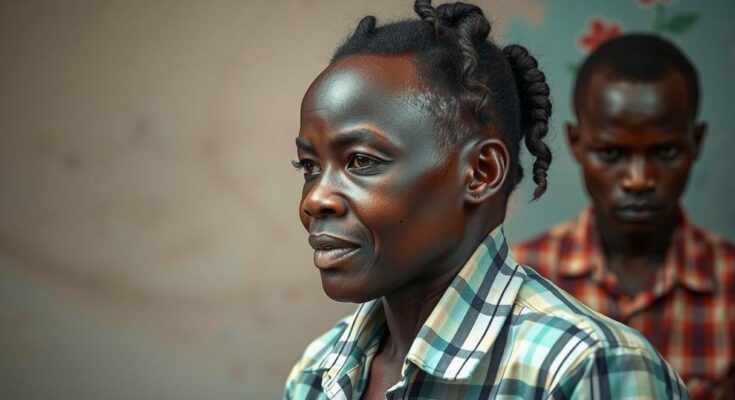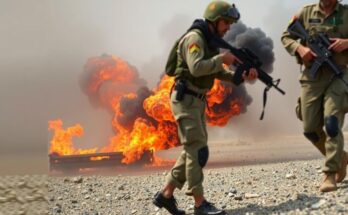Eastern Congo faces a severe mental health crisis due to prolonged conflict, with a dramatic increase in people seeking help. Despite a rise in demand for mental health services—over 20,000 this year—funding remains critically low. The situation is exacerbated by violence and sexual assaults, leaving many individuals helpless and in despair. Effective intervention and increased support are urgently needed to address the ongoing crisis.
In eastern Congo, years of persistent conflict have led to a severe mental health crisis, exacerbated by the dire living conditions in displacement camps. Individuals like Nelly Shukuru, who faced unimaginable struggles, have expressed feelings of despair and hopelessness. The demand for mental health services has surged, with over 20,000 people seeking psychosocial support in camps around Goma in just the first half of this year, a dramatic increase from the previous year. Reports indicate that those suffering from anxiety, depression, post-traumatic stress disorder, and suicidal thoughts have markedly increased as violence intensifies. Unfortunately, mental health services remain critically underfunded, receiving less than 30% of the required $180 million aimed at addressing these urgent needs.
The casualty of warfare extends beyond physical injuries; it permeates the psyche of those affected. Women, in particular, have reported increased incidents of sexual violence, compounding their trauma. Organizations like Action Against Hunger and Doctors Without Borders are attempting to provide support, but the overwhelming demand and lack of resources remain significant hurdles. The United Nations has labeled the situation in Congo as one of the world’s most neglected crises, highlighting the urgent need for intervention and funding.
In an environment marked by instability, individuals are finding little solace. For instance, displaced individuals often confront both the threat of violence from armed groups and psychological distress. Community leaders are being trained to identify signs of mental health issues and direct individuals to clinics, promoting a more proactive approach to care. Moreover, various innovative strategies are being employed by organizations like War Child, which combines play and movement to engage children traumatized by conflict, aiming to offer them a brief respite from their suffering. Despite these efforts, the ongoing violence continues to overshadow progress, and many individuals such as children and mothers express feelings of hopelessness and despair about their futures.
The ongoing conflict in eastern Congo has garnered international attention due to its severe humanitarian impact, particularly on mental health. With over 100 armed groups contesting control in the region, living conditions in displacement camps have drastically worsened, leading to rising mental health issues amongst the population. Psychological distress is compounded by factors such as poverty, lack of support services, and the prevalence of violence, creating a tumultuous environment for those seeking recovery. As the situation continues to deteriorate with escalating conflict from groups such as the M23, the need for effective mental health services has emerged as a critical component of humanitarian assistance.
In summary, the mental health crisis in eastern Congo is deepening due to prolonged conflict, inadequate support services, and increasing violence. Both individuals and families are facing overwhelming despair, with reports of rising suicidal thoughts and traumatic experiences related to sexual violence. Despite organizations attempting to provide necessary care, the underfunding of mental health services poses a significant barrier to recovery. The urgent call for international support remains paramount to address this neglected crisis and restore hope to the affected communities in Congo.
Original Source: www.ap.org




